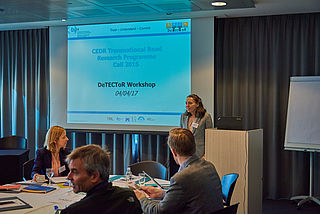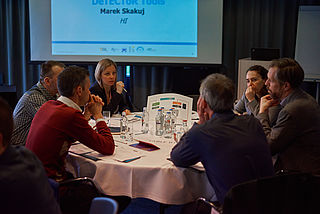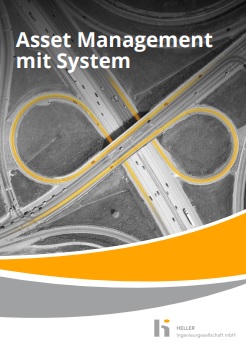DeTECToR Workshop: Sustainable strategies for climate change

The workshop attendees included representatives from European National Road Authorities (NRA), Australia and the consortium organisations. In the first part of the workshop the results of Work Package 2 ‘Evaluation of Research and Determination of Stakeholder Requirements’ were presented. This included results from an online survey and analysis of existing research projects relating to climate change. “The task is to find out what is usable in practice,” Sarah Reeves, project leader at TRL says. „From the survey results we were able to identify the impacts of climate change which are the highest priority for the NRAs.“ A summary of all WP2 results will be available soon in the Interim Report 1.
The second part of the workshop dealt with the Work Package 3 „Development of Decision Support Tools“. In order to take climate change into account during the management of infrastructure and to support sustainable procurement, two tools will be designed and developed. In an interactive session the scope of the tools were discussed. For the first tool participants identified climate hazards, consequences and potential adaptation actions. For the second tool attendees discussed what type of procurement guidance NRAs require and how DeTECToR could provide this. In the second interactive session the required features of the software were drawn up. This will be used in the development of the specifications the software, a task which HELLER is leading.
Draft versions of the two tools will be trialled through pilot studies carried out in countries with different climates, types of procurement processes and data availability. The consortium will work with the selected NRAs throughout the tool development.
The project survey showed that consideration of climate change is not yet embedded in European NRAs economic appraisal and procurement processes. However all countries involved in the project are ambitious to take measures to improve their organisations approach to climate change. Sweden has a stated aim: „With regards to our climate policy we want to reduce the country’s net CO2 emissions to zero by 2050“, Håkan Johansson of Trafikverket in Sweden explains.
The next consortium meeting will take place in September 2017 in Germany with the aim to analyse and optimize the first version of the tool. The presentation of the final results of the whole project is scheduled for September 2018. Further information on the research project DeTECToR can be found at the project homepage: http://detector.trl.co.uk/





